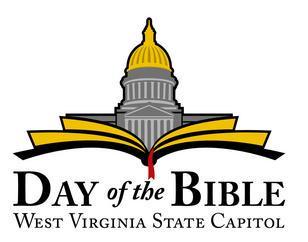Fourth Circuit Court Hears Oral Arguments in Tax Exemption Case
“It is past time that legislation is enacted to clarify the independence of tax-exempt organizations, from those receiving federal financial assistance.” - Rep. Doug Lamborn (CO)

The 4th Circuit Court of Appeals recently heard oral arguments in the religious hiring case Buettner-Hartsoe v. Baltimore Lutheran High School Association. The case involves five girls who sued the Lutheran school for not adequately addressing their complaints of sexual harassment, as required by Title IX. The school claimed that it is not subject to Title IX because it is not a recipient of federal funds. However, the U.S. District Court for the District of Maryland decided against the school, ruling that the tax-exempt status of the school constituted “federal financial assistance” (FFA), and, thus, made the school subject to the regulations of Title IX.
During the oral arguments before the 4th Circuit, the attorneys representing the students argued that federal laws about tax-exempt status were “ambiguous” and likened tax exemption to a “grant, loan, or contract.” The panel of three judges, two Obama appointees and one Trump appointee, expressed incredulity at times at the lawyers’ arguments, with one judge asking if her taking a tax deduction on her own taxes would be considered FFA under the argument. The judges exclaimed that they were “dumbfounded,” asking one attorney “how was that possible” to consider tax exemption as FFA while a tax deduction was not. Later on, judges asked the lawyers where a judge might find the rule to help them figure out whether tax treatment is considered FFA. The judges also pressed attorneys on why federal agencies have not enforced federal law and regulations on the host of tax-exempt organizations that, under the attorney’s definition, have always been recipients of FFA and thus were always subject to federal laws like Title IX.

Throughout oral arguments, the judges expressed skepticism that tax exemption and the many organizations it affects should be upended. They also seemed unpersuaded by an argument that, when applied to individuals, would likely turn millions of Americans who claim a deduction or tax credit into recipients of FFA overnight. While the tone of the questions indicates that the court may look favorably on the religious schools in this case, it is impossible to predict how the court will decide.
Because of the implications of this case, the AACS submitted an amicus brief to the 4th Circuit, urging a reversal of the lower court’s decision. In addition, the AACS has endorsed the Safeguarding Charity Act which would provide a nationwide solution to the false claims that tax-exempt status is the same as FFA. As previously reported, Sen. Marco Rubio (FL) and Rep. Greg Steube (FL) have introduced this simple, one-sentence bill to codify that the tax-exempt status is not FFA. Though the text is short, the effects would be consequential. If passed, the bill would cut through the patchwork of court cases to create a nationwide standard that would prevent anyone from claiming a tax-exempt organization is the recipient of FFA. Tax-exempt organizations span a wide range of organizations, all of which would now be subject to costly and burdensome regulations under this novel legal theory. Rep. Doug Lamborn (CO), an original cosponsor of the bill, summed up the issue by saying, “It is past time that legislation is enacted to clarify the independence of tax-exempt organizations, from those receiving federal financial assistance.”
*As seen in the 2/23/2024 issue of The Washington Flyer

AACS Policy Office
AACS – the American Association of Christian Schools – is one of the leading organizations of Christian schools in the country. Founded in 1972 and now in operation for fifty years, the AACS serves over 100,000 students and teachers in member schools throughout the United States. The general purpose and objectives of AACS are to aid in promoting, establishing, advancing, and developing Christian schools and Christian education in America.
















